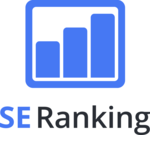
SE Ranking
4.8
(4.8)
About SE Ranking
Best Ease of Use Link Management Tools Software (2020)Best Value Link Management Tools Software (2020)
seranking.com
4.6
(4.6)
4.7
(4.7)

